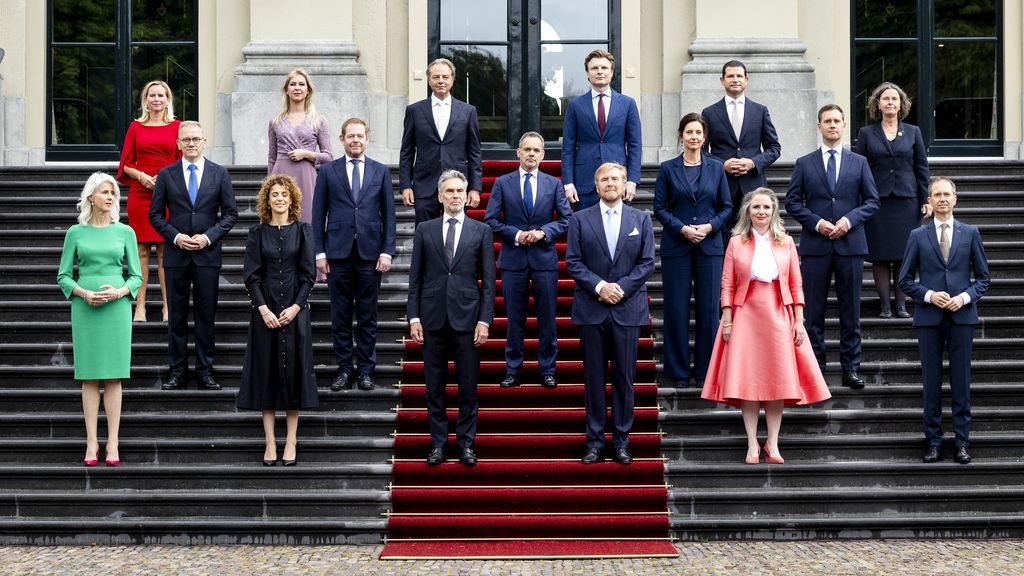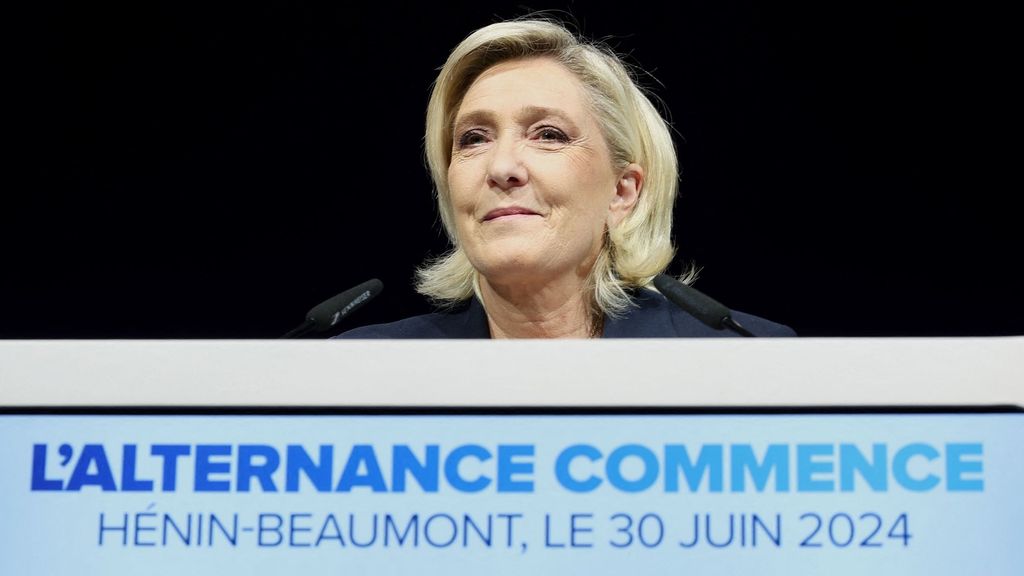News News••an average
Marine Le Pen’s far-right National Rally party won 34% of the vote in the first round of France’s parliamentary elections. This is clear from director From Ipsos Talan.
The left-wing New Popular Front coalition comes in second with 28.1 percent. President Macron’s coalition remains stuck at 20.3 percent. Immediately after the results came in, Macron called on French voters to support the “Republicans and Democrats” candidates in the second round of the election.
The matches will be held next Sunday. Macron also expressed his happiness with the high turnout in today’s elections. Ipsos estimates the turnout at 65.8 percent. This is 18 percentage points higher than in 2022 and the highest since 1997.
The winner, Le Pen, said in an initial response that the French people had eliminated the central bloc to which Macron belonged. She called for achieving an absolute majority in the second round of elections so that her party could “reclaim France and restore unity.”
She said her party needed an “absolute majority” for National Rally leader Jordan Bardella to be “appointed prime minister by Emmanuel Macron within eight days.”
The high turnout may have something to do with the possibility that France will have a far-right majority in parliament for the first time. Prominent footballer Kylian Mbappé, among others, called on people to vote to prevent this.
President Macron unexpectedly called an election on the evening of the European elections earlier this month, with the far right winning. It is believed that Macron cannot ignore this result. His term does not end until 2027.
There are 577 constituencies and in each district only the winner goes to parliament. If no candidate gets an absolute majority, a second round will be held next week.
negotiate
Between the first and second rounds, the parties will negotiate with each other to increase the chances of success. For example, in one electoral district one party may withdraw in favor of another party, and in another the opposite happens. Partly as a result, voters will vote more strategically.
In the past, for example, left-wing French often voted not for their preferred party in the second round, but rather for the party that had the best chance of defeating the far-right National Front.
Therefore, the result of the first round today may differ from the result of the second round. For example, in 2012, the Socialist Party received 29% of the vote in the first round, and at least 41% in the second round.
Heart versus head
In the last parliamentary elections in 2022, the same thing happened to Macron’s party: its support rate rose from 26% in the first round to 38% in the second round.
So today’s first round results show where voters’ hearts lie. A week later, the second round results will show what kind of government they want.








